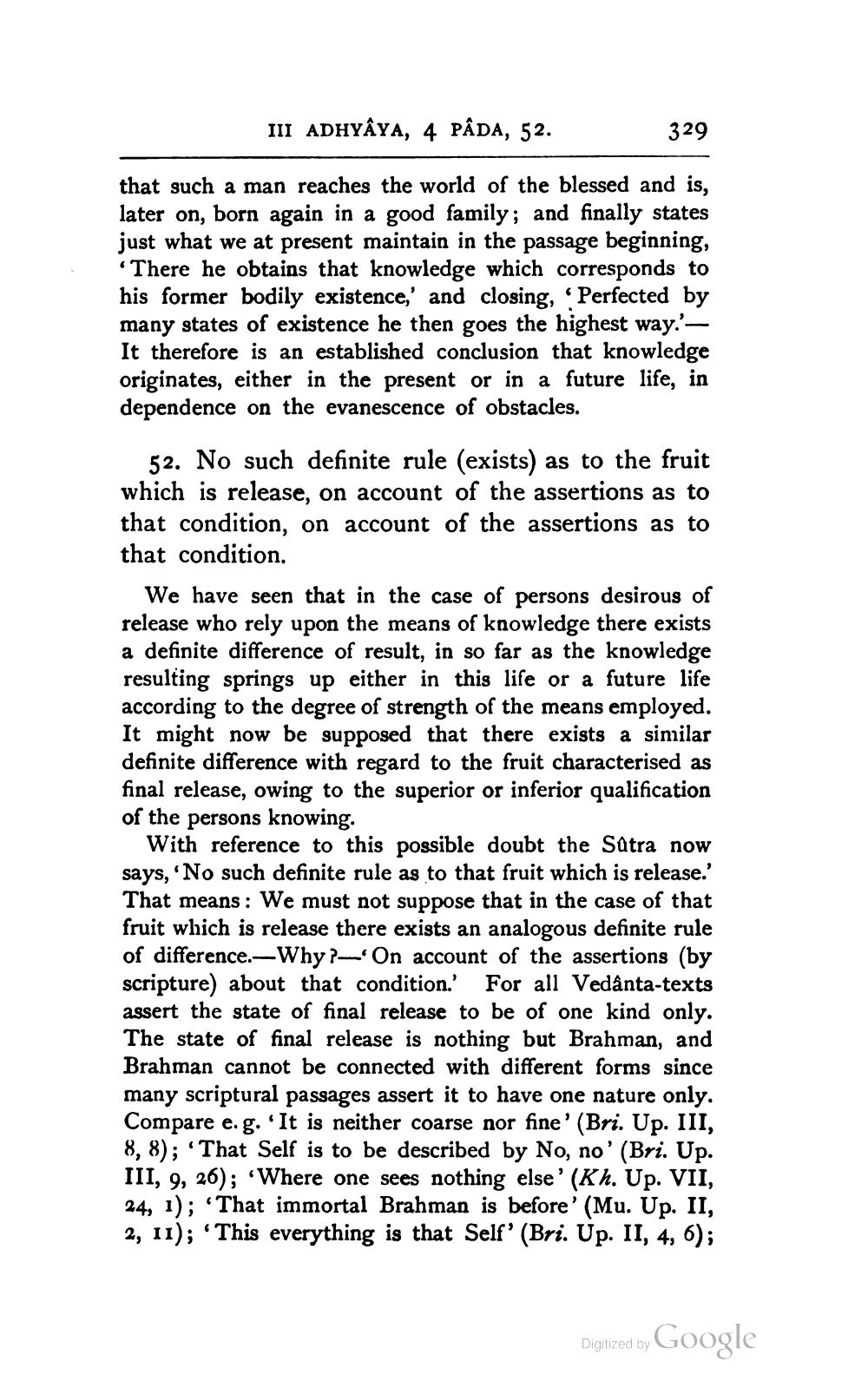________________
III ADHYÂYA, 4 PÂDA, 52.
329
that such a man reaches the world of the blessed and is, later on, born again in a good family; and finally states just what we at present maintain in the passage beginning, •There he obtains that knowledge which corresponds to his former bodily existence, and closing, Perfected by many states of existence he then goes the highest way.'— It therefore is an established conclusion that knowledge originates, either in the present or in a future life, in dependence on the evanescence of obstacles.
52. No such definite rule (exists) as to the fruit which is release, on account of the assertions as to that condition, on account of the assertions as to that condition.
We have seen that in the case of persons desirous of release who rely upon the means of knowledge there exists a definite difference of result, in so far as the knowledge resulting springs up either in this life or a future life according to the degree of strength of the means employed. It might now be supposed that there exists a similar definite difference with regard to the fruit characterised as final release, owing to the superior or inferior qualification of the persons knowing.
With reference to this possible doubt the Sutra now says, 'No such definite rule as to that fruit which is release.' That means: We must not suppose that in the case of that fruit which is release there exists an analogous definite rule of difference.-Why ?-On account of the assertions (by scripture) about that condition. For all Vedanta-texts assert the state of final release to be of one kind only. The state of final release is nothing but Brahman, and Brahman cannot be connected with different forms since many scriptural passages assert it to have one nature only. Compare e. g. It is neither coarse nor fine' (Bri. Up. III, 8,8); 'That Self is to be described by No, no' (Bri. Up. III, 9, 26); Where one sees nothing else' (Kh. Up. VII, 24, 1); 'That immortal Brahman is before' (Mu. Up. II, 2, 11); 'This everything is that Self' (Bri. Up. II, 4, 6);
Digitized by
Digilzed by Google




